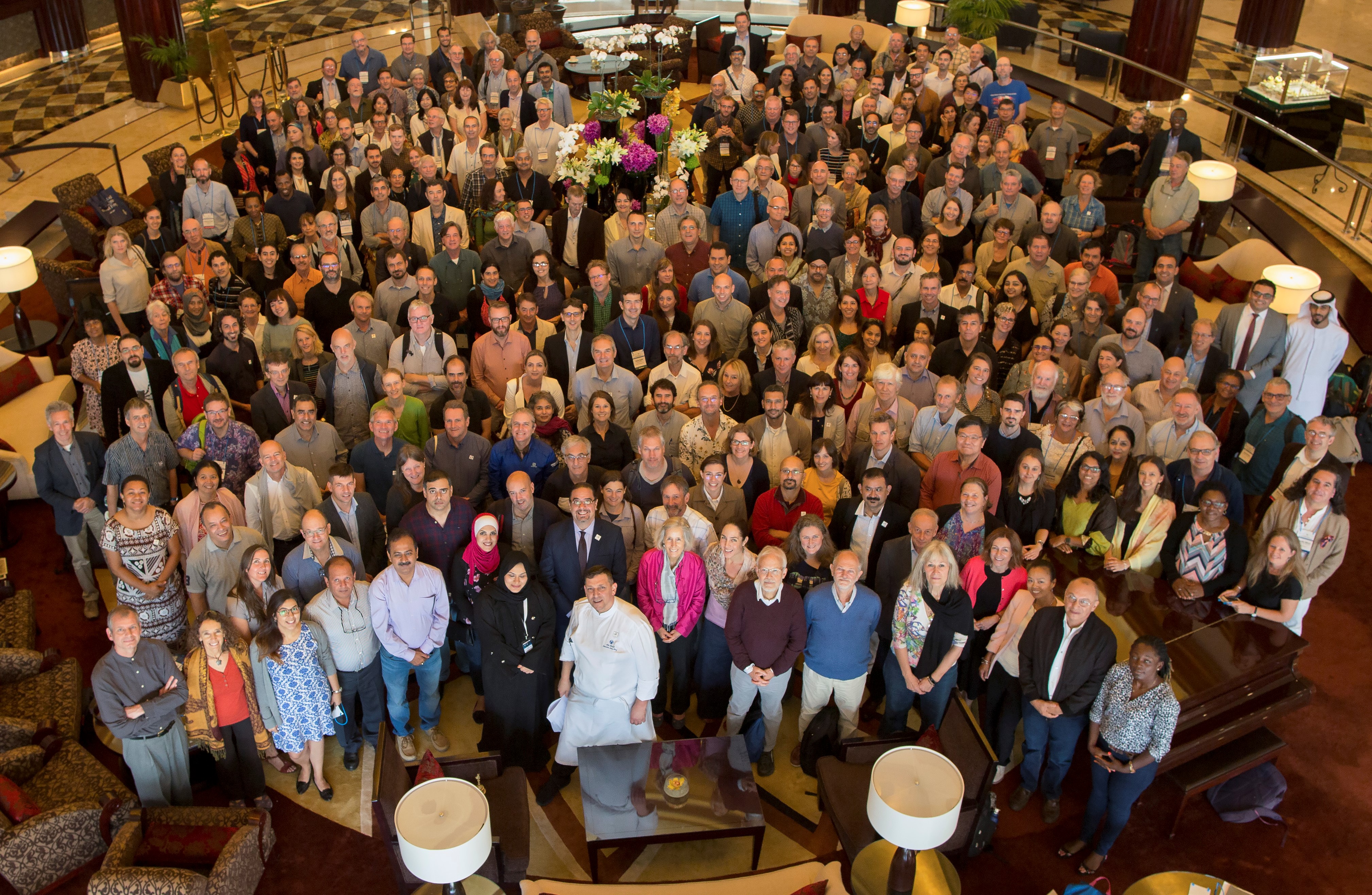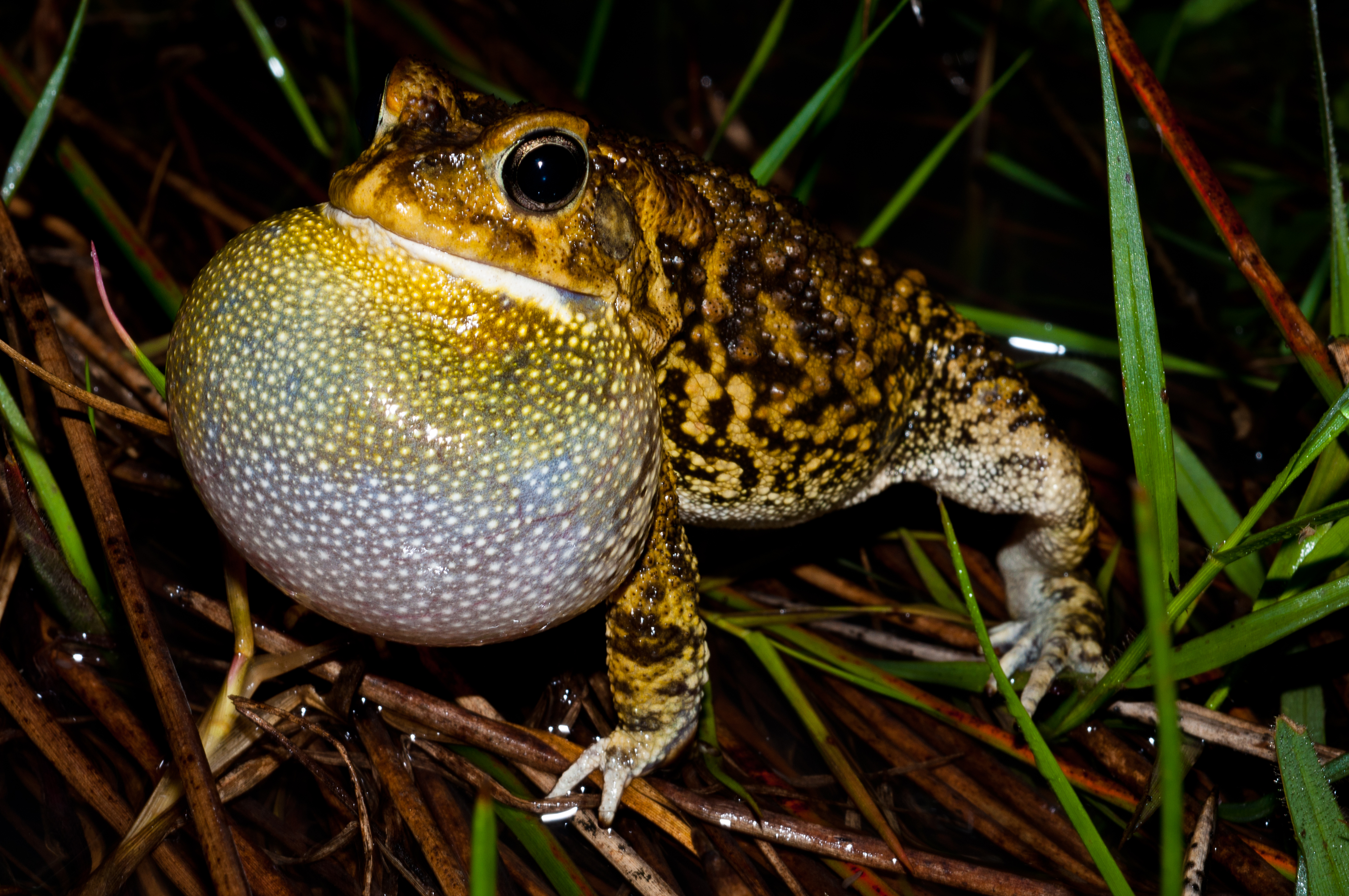IUCN has issued an urgent call to massively scale up species conservation action in response to the escalating biodiversity crisis. The Abu Dhabi Call for Global Species Conservation Action appeals to the world’s governments, international agencies and the private sector to halt species decline and prevent human-driven extinctions by 2030, and to improve the conservation status of threatened species with a view to bringing about widespread recovery by 2050.
The Abu Dhabi Call was issued at last week’s IUCN Species Survival Commission (SSC) Leaders’ Meeting, which was attended by four members of the IUCN SSC Amphibian Specialist Group Secretariat: Dr. Ariadne Angulo and Prof. Phil Bishop (ASG Co-Chairs), Jennifer Luedtke (Amphibian Red List Authority Global Coordinator), and Sally Wren (ASG Programme Officer).

The document urges governments to take emergency measures to save those species at the highest risk of extinction and tackle key threats that are driving population declines and extinctions. These include the lack of incentives for landowners and managers to retain wild species and natural habitats; poor or abusive practices in agriculture, fisheries, and forestry; wildlife crime; emerging infectious diseases; the disruption of water flow; inadequate management of waste and discharges; invasive alien species; and increasingly, climate change and ocean acidification.
“As the most threatened terrestrial vertebrate class on earth, amphibians are at the forefront of the biodiversity crisis” said Dr. Ariadne Angulo. “The Abu Dhabi Call for Global Species Conservation Action is not just an opportunity to step up conservation efforts, but a moral duty to safeguard imperilled amphibian biodiversity across the globe.”
Prof. Phil Bishop added “The decline or extinction of any amphibian species results in the loss of their valuable ecological, cultural and economic roles. We need to urgently apply our scientific knowledge to amphibian conservation, working together to avoid any further catastrophic losses of important amphibian diversity.”
The Call is the result of more than 300 SSC Leaders coming together in Abu Dhabi on the cusp of 2020, a year that will see critical decisions for the future of the planet taken by policy makers. The United Nations Sustainable Development Goals and the UN Paris Agreement on Climate Change will be reviewed, and the Convention on Biological Diversity will adopt the Post-2020 Global Biodiversity Framework. A new UN legal binding agreement on marine biodiversity in the High Seas is under negotiation. The IUCN World Conservation Congress will amplify this Call, which will then be addressed by the United Nations Heads of State Summit on Biodiversity.

A global Programme of Work on Species Conservation will be launched at the IUCN World Conservation Congress in June next year. IUCN calls on Parties to the Convention on Biological Diversity and the other biodiversity-related conventions to respond by including this Programme in the post 2020 global biodiversity framework and follow up with urgent implementation. At the Congress, governments, civil society and indigenous peoples’ organisations will come together to drive conservation efforts for ‘a just world that values and conserves nature’.
“Decisions made in 2020 will define the future of the planet,” said Dr Jane Smart, Global Director of the IUCN’s Biodiversity Conservation Group. “We face a nature emergency. Species are the primary source of income and resources for hundreds of millions of people around the globe; their aesthetic values and spiritual roles provide comfort and inspiration as well as recreation. At this critical moment, the world’s governments must accept responsibility for this emergency and act now to ensure we pass on a rich natural heritage to future generations. This is a unique opportunity to mobilise society and galvanise the necessary action to address thespecies crisis.”
IUCN also recalls that the global target to bring about the recovery of known threatened species adopted in Nagoya, Japan in 2010 is unlikely to be met, despite substantial efforts from conservationists worldwide. Looking forward, IUCN emphasises the importance of including clear, ambitious targets on species conservation in the Post-2020 Global Biodiversity Framework.
In recognition of the scale of transformative change that is needed, the Abu Dhabi Call for Species Conservation Action encourages governments and donor institutions to allocate substantial additional resources for conservation of species and their habitats.


Strong measures should be taken for amphibian conservation. Yes, the habitat become lost and fragmented even the untouched places.